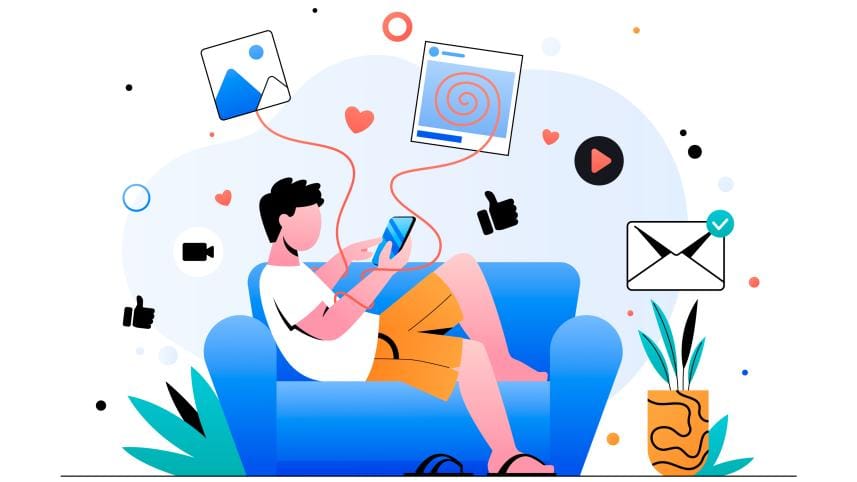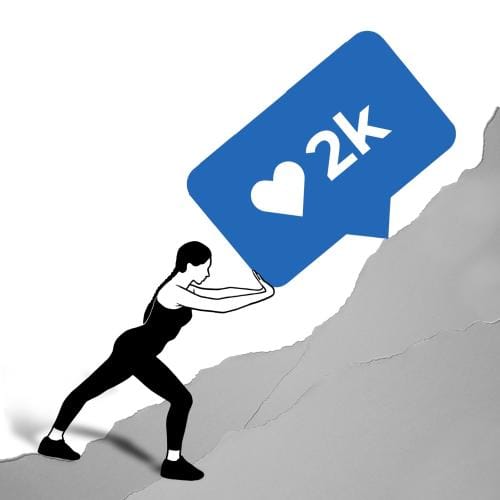What are we really running from?
I have trained my brain to shut off at the exact moment when I feel bored. In this hustle culture, should we be scheduling self-care the same way we do all our other to-dos?
A friend's Instagram story gave me proper pause the other day. She had written something along the lines of, "Why can't we just enjoy a moment of peace and quiet? Why must we always be plugged into a podcast or play Spotify, even when we're doing the dishes?"
It struck a chord. It made me realise that I, myself, have become a master escapist. Not in the Houdini sense, of course—I can't vanish from a locked room. But I can certainly disappear from the present moment. My hand performs its well-practised trick: the moment a meeting lulls, a conversation pauses, or a task feels a bit too long, my phone is in my hand. It lights up. A door opens. And I'm gone.
For years, I wore this like a badge of honour, a testament to my hyper-efficiency. I'd tell myself, with immense pride, that I'd "trained my brain to switch off the very second I felt bored." The penny only dropped when I realised that I needed some kind of digital anaesthesia to watch a movie, read a book chapter, or even wait five minutes for the kettle to boil. I had been Pavlov'd; I hadn't trained my brain. My need for distraction only grew stronger as the bell of boredom rang. My survival mechanism of being constantly on the phone became my gilded cage.

The modern mind is gradually being handicapped by this conditioning. We confuse it with a lack of "discipline", a moral failing, or a deficiency of focus. It's a fatal misdiagnosis. In reality, we are dealing with a masterfully designed neurological shortcut. In its never-ending quest for efficiency and pain avoidance, my brain performs a basic cost-benefit analysis: either long-term, painstaking silence or a short-term dopamine boost.
Today, for me, it's a six-lane neurological motorway, and it's a one-way street—away from discomfort. The toxicity of this habit lies in its effectiveness, actually. It solves the immediate problem brilliantly, all while guaranteeing that the larger issue—my ability to endure the necessary, everyday aspects of a meaningful life—remains unaddressed.
But boredom is rarely just boredom. It's merely the tip of the iceberg; everything we're genuinely trying to escape lies just beneath the surface. I now know that my desire to switch off is a mental trick to draw attention away from the primary event.
That itch to scroll through social media mid-task? It's not the work itself; it's the fear of not doing it well enough. Do you really need to check the news for the tenth time? It's not a thirst for current affairs; it's avoidance of a difficult conversation I have to have later. Boredom is a stand-in for anxiety, insecurity, overwhelm, and sadness. That overprotective parent in my brain would much rather I play a simple, mindless game than confront the complex, emotional adult problems waiting in the wings. It hands me a digital lollipop to quiet the difficult questions.

Seeing the trap is one thing; breaking free is another. My first instinct, of course, was to figure out the most effective way out. I'd 'engineer' my way to salvation. I meticulously organised my self-care like a corporate project manager. 7:30 am: wash and coffee. 8:00 am: I fiercely referred to this as my 'ME-TIME' by reading and keeping a journal.
My breakthrough came when I made a conscious effort to practise self-care, rather than just going through the motions. I didn't scrap the schedule, but I changed its purpose. The Google Keep alert for 'read or write' is now an invitation, not a command. I've tried to make it a sanctuary against the outside world's demands. My experience of reading the book matters more than finishing its pages. This shift in thought was the key that began to unlock my escape-artist brain. Now, I get curious. Instead of reaching for the phone, I ask a gentle question: 'What is this really about?' Am I tired? Am I afraid of the next thing on my list? Am I just lonely? Sometimes there's an answer. Often, there isn't. But the act of asking is what matters. It is the reshaping of the pathway.

Finally, I make a choice. Not the default choice, but a conscious one. The goal isn't to eliminate but to break the monopoly. To reclaim the agency to choose my response. It is to find the courage to just sit there, in the quiet, itchy, restless boredom, and discover that it won't kill me.
I am learning that the gilded cage door was never locked. It was just easier, for a long time, to stay inside and perform my trick than to step out into the world of terrifying, unscripted moments.
Nazmun Afrad Sheetol is an IR graduate and a Substack writer. Find her at sheetolafrad@gmail.com.
Send your articles for Slow Reads to slowreads@thedailystar.net. Check out our submission guidelines for details.




 For all latest news, follow The Daily Star's Google News channel.
For all latest news, follow The Daily Star's Google News channel.